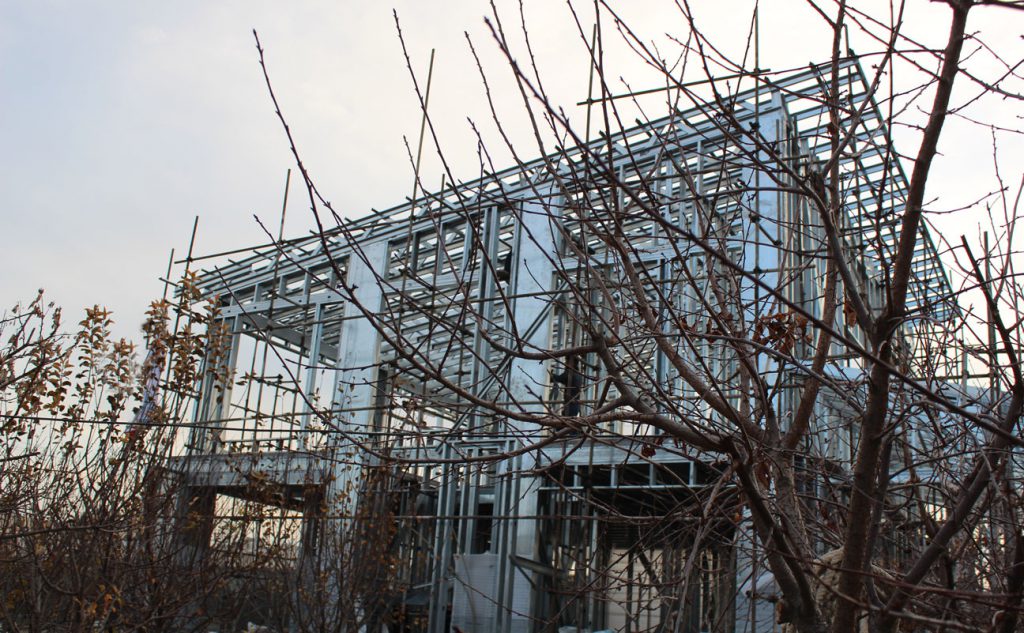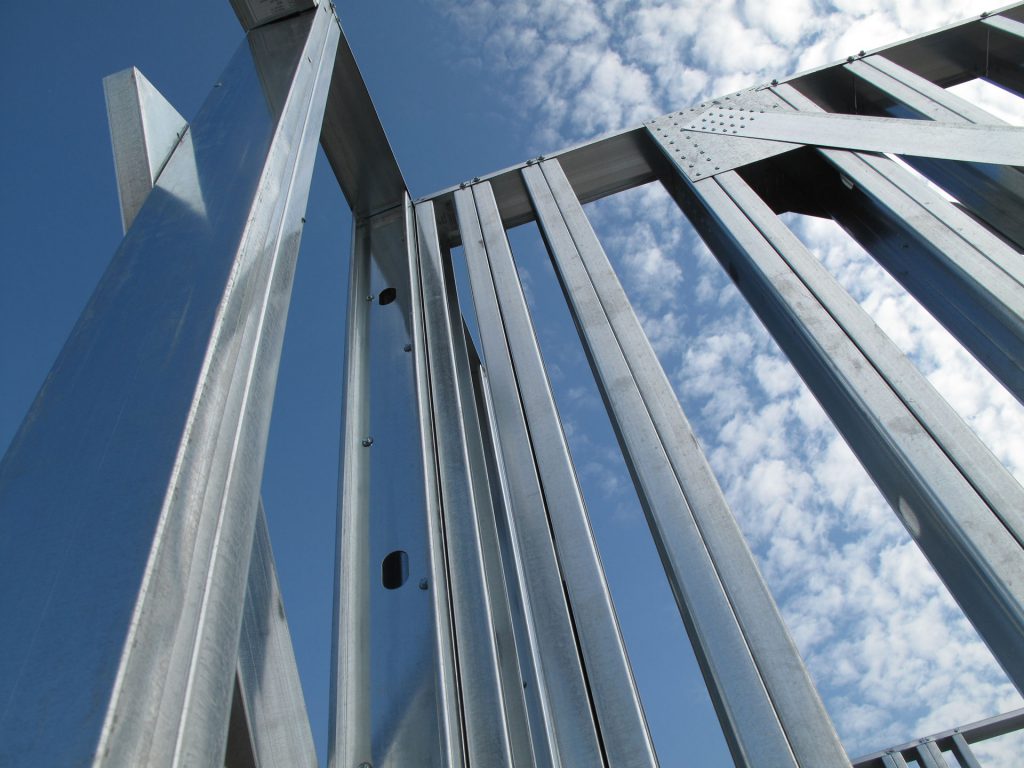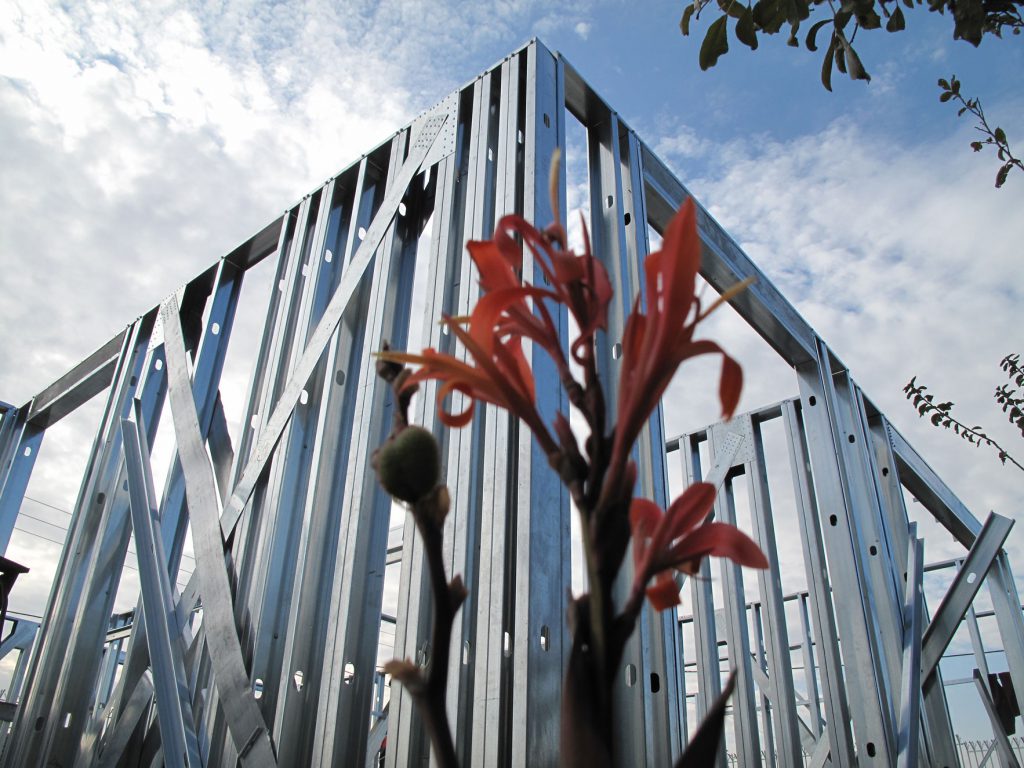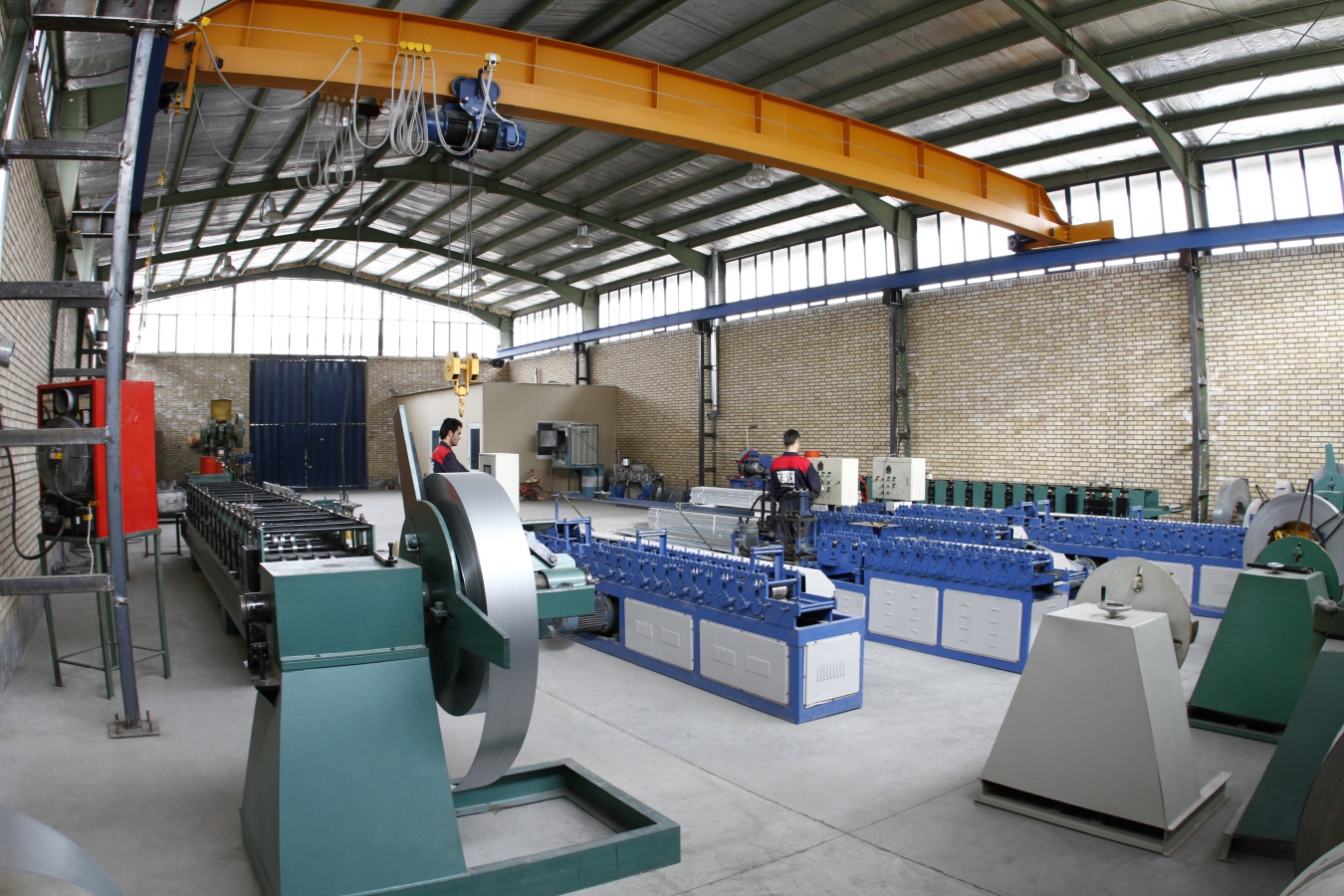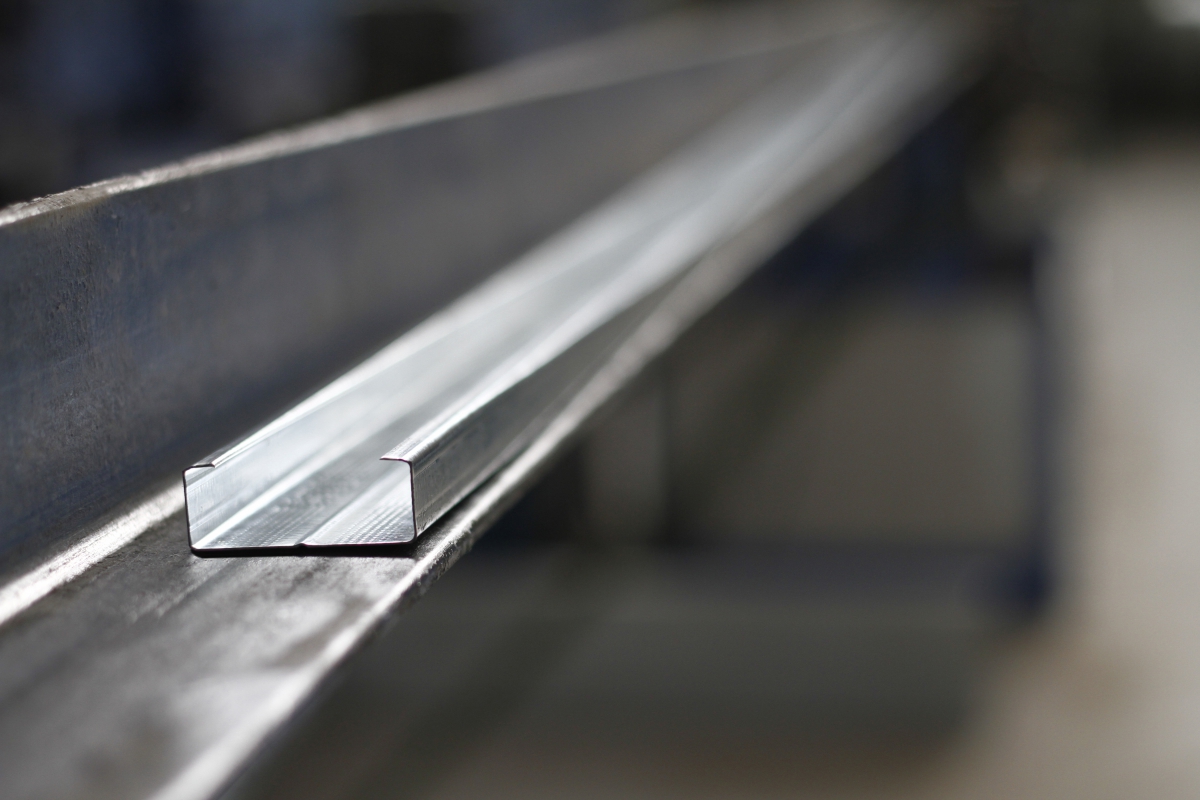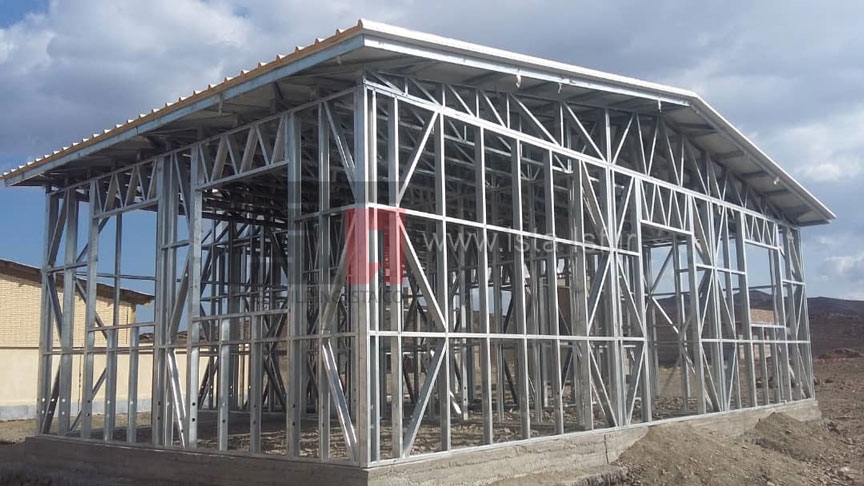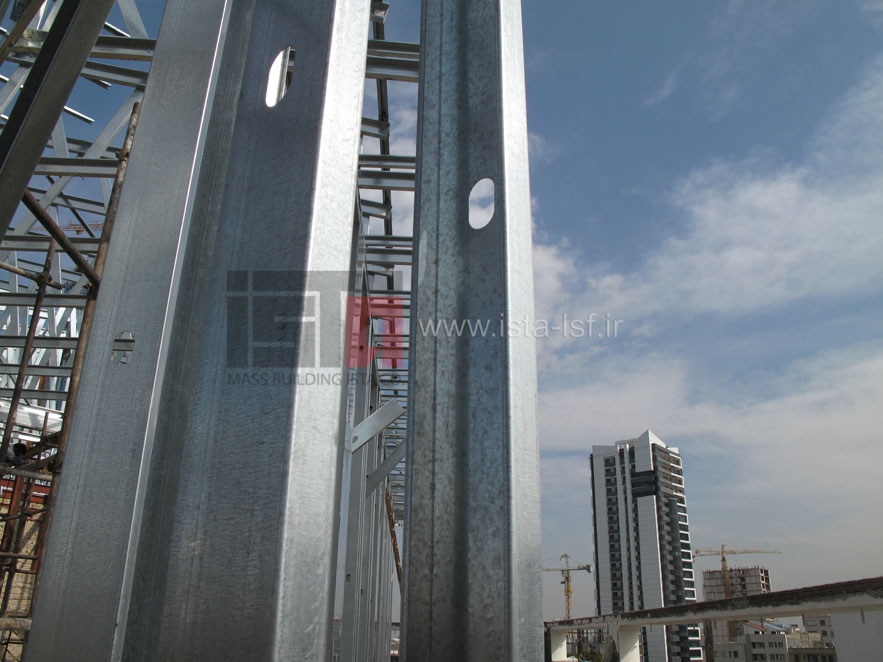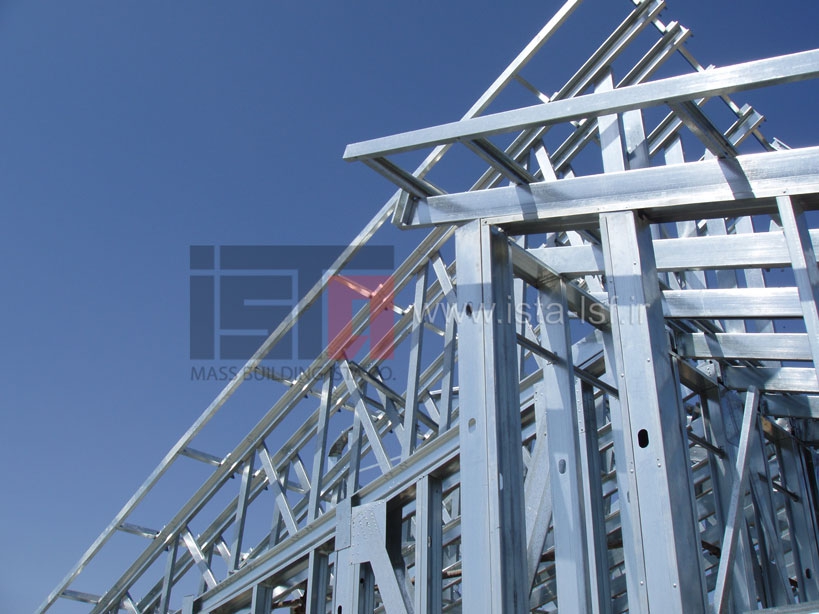Introducing the LSF System and Light Structure
LSF light structure or light steel frame system (Light Steel Frame) with the abbreviated name L.S.F is made of cold-rolled steel sections or (Cold Formed Steel) CFS. The components used in this system are metal profiles obtained from cold rolling of steel sheets with thicknesses of 0.45 to 3 mm. To protect these elements against rust and corrosion, zinc alloy with a thickness of 40 to 120 microns is used. The light metal frame system is placed in the general format of load-bearing wall systems. Gravity bearing elements consist of single or combined sections and are mostly C or U shaped or a combination of these sections. The walls consist of an arrangement of C-shaped vertical components (master) at intervals of 40 to 60 cm, which are restrained at the top and bottom inside the U-shaped horizontal components (runner or track). The load-bearing components of the roof are mainly using single or combined sections of U, C and Z shape and at intervals of 40 to 60 cm.
History of LSF Steel System and Structure
The history of using cold-rolled steel in buildings goes back more than 150 years. However, activity on a large scale in this industry, after conducting academic research around the 1950s and with the publication of the first edition (Design criteria for cold-rolled steel structural members) by the American Iron and Steel Institute (AISI). He took it upon himself. The use of cold-rolled sections, due to the wide range of sections, light weight, ease of implementation, etc., quickly spread in the United States, North America, Europe, and East Asia. In Iran, despite the implementation of projects using steel sections Cold rolling in the years 1350 and after and by mostly foreign companies, the most progress of this system in terms of speed, economy and compliance with energy issues goes back to the last few years.
Advantages of the LSF System and light structure
Among the advantages of the LSF style structure, the following can be listed:
- Reducing the weight of the building and thus reducing the effect of seismic forces
- Good seismic performance
- Significant reduction in build time
- Faster return on initial capital
- Economicization of housing construction
- Compatibility with the environment and compliance with the principles of sustainable construction
- Durability and stability of the structure and increasing the useful life of the building
- Reducing building maintenance costs
- Increasing the degree of uncertainty of the structure and as a result increasing the stability
- Economical transportation
- Ability to recycle materials
- Simplicity in prefabrication and mass production
- Quick and easy installation
- Absence of delays caused by weather conditions in the production, construction and installation of the structure
- The possibility of modular production and prefabricated construction
- High accuracy in the execution of details
- Ease of meeting the requirements of topic 19
- There is a suitable space for the passage of facilities
- Ability to use flame-resistant materials
- High resistance to rotting and carrying termites
- No need for formatting
- Absence of drop and creep in ambient temperatures
- Uniform quality in different parts of the structure
Watch The Benefits of Light LSF Structures
